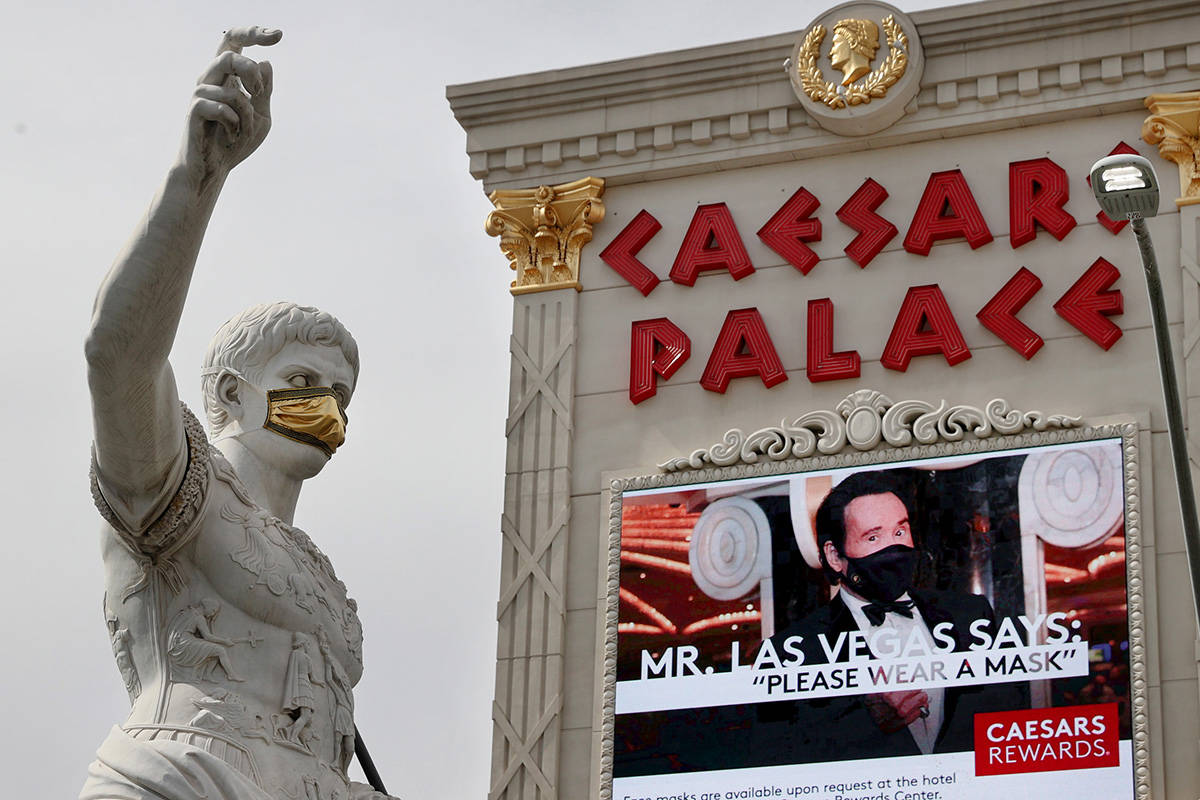Casinos may be disciplined for failing to enforce facial coverings

The Nevada Gaming Commission may be asked to discipline gaming licensees that fail to require customers to comply with Gov. Steve Sisolak’s new order mandating facial coverings in public areas.
“We will continue to explore those instances where behaviors have merited some form of disciplinary action,” Gaming Control Board Member Terry Johnson told commissioners Thursday. “Where warranted, the board will take (action) and that may involve the Gaming Commission at some point, should matters proceed to hearings, or in worst-case scenarios — which I do not anticipate — where there is willful refusal to comply with the governor’s directives.”
Sisolak on Wednesday announced that facial coverings will be required in all public areas, including casinos, beginning Friday.
The Control Board is currently overseeing compliance to health and safety guidelines for nonrestricted licensees — the largest hotel-casinos — and restricted licensees at bars, restaurants, convenience stores and supermarkets that have 15 slot machines or fewer.
He said the board has yet to decide on “appropriate disciplinary action” for noncompliance and is considering suspending gaming licenses “or other activities.”
“We do expect cooperation and we’ll commit the resources necessary to assist the gaming licensees maintain compliance,” he said.
The commission also is empowered to fine noncomplying companies.
Johnson didn’t say how many additional Control Board employees are in the field assisting with enforcement but said checks are occurring around the clock.
“It’s a 24/7 operation. They’re out there day in, day out, working with the licensees, bringing items to their attention for correction, and we’ll continue to do that work.”
Johnson also indicated the Control Board may seek commission help if licensees that are closed need more time to reopen.
“We do anticipate there are still some properties that might take a little bit longer to open,” Johnson said. “That might present, at some point, an administrative issue that we may need to enlist the assistance of the commission with in regards to any licensees that might need to stay closed longer than a calendar quarter, for example.”
Johnson said under existing regulations, the board can grant authorization for a licensee to close for longer than 30 days. However, there is a cap on that time period of one calendar quarter.
“We might need to work with the commission to look at those regulations and see if there’s some additional flexibility that could be conferred out of the circumstances and otherwise work with licensees on some other avenues that may be of assistance to them,” Johnson said.
Contact Richard N. Velotta at rvelotta@reviewjournal.com or 702-477-3893. Follow @RickVelotta on Twitter.